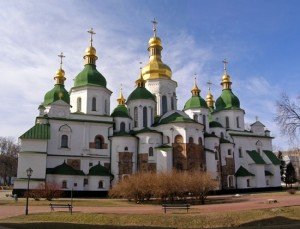In the last issue of this article I began a series of thoughts about the differences between Eastern and Western Christianity by first looking at one of the major influences on Western Christianity, the Reformation. The Reformation did not directly influence Eastern Christianity. It did, however, indirectly influence our Greek Catholic faith when our Church reestablished union with Rome. Further our Church, when its people came to the United States, was influenced by Western theology for two reasons: (1) the desire of our people to be seen as Catholic instead of Orthodox and (2) our clergy were all educated in Roman Catholic seminaries.
Perhaps the one most profound theological thought that influenced the Western Church was that of Original Sin. Religious thoughts about mankind’s imperfections were clearly reinforced in the Reformation. Luther, of course, was an Augustinian monk. Perhaps one of St. Augustine’s main theological ideas was that of Original sin. This one idea influenced not only Church ritual (e.g., Baptism, Penance) but impacted Christianity’s whole idea of salvation. This caused our Church to forget for some time the important theological idea of Theosis.
In order to honestly assess the contribution of the Reformation, we must clearly address the events and conditions surrounding that period. Only after acknowledging these factors can we correctly understand the Reformers and their positions. This analysis is not only significant for our interpretation of the doctrine of the Reformation which has greatly shaped Western Christianity and Catholicism.
The teaching of Fundamentalism and Evangelicalism, although it differs in a number of ways from Reformation doctrine, the theological and psychological “seeds” sown in that period are still present within these Christian bodies today. Catholicism, the predominant religion of the Western world, had to defend itself against Reformation doctrine.
The Reformation cannot be rightly evaluated if one removes it from its human-historical context. This event was not just a forum for differing theological positions, it reflected the sociological, economic, political, religious and philosophical climate of an entire era. The people of that period shared a philosophical frame of reference different from the Biblical one, affecting their understanding of the world and, of course, religion.

